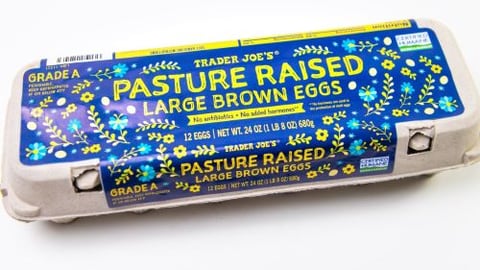EXCLUSIVE: What's on Retail Dietitians' Minds?
There was a lot of proverbial food for thought shared at a recent meeting presented by the Retail Dietitians Business Alliance (RDBA). At the event, held digitally from April 18-20, retail dietitians gained insights and news from a full slate of experts, including dietitians from grocery, mass and other retail channels, food professionals and trend analysts.
Stephanie Schultz, VP, strategic partnerships and initiatives and R.D. ambassador for RDBA — which was acquired by the Association of Retail and Consumer Professionals (ARC) in January — shared key takeaways from the event during an exclusive interview with Progressive Grocer.
Food as Medicine
According to Schultz, a main topic of this year’s virtual event was the idea of food as medicine. “It became a real issue when the White House did the summit last fall, and that was woven into a lot of the conversations and networking," she said, referring to the White House Conference on Hunger, Nutrition and Health.
As eating for health and wellness has become more of a priority in recent years, retail dietitians and their grocery employers can leverage parallel advances in technology and the growing impetus for food equity to provide solutions to shoppers, she added. “There are opportunities to embrace technology now to enhance the effectiveness of programs that retail dietitians are putting together, whether it’s from an e-commerce perspective or telling a story with data,” Schultz remarked. For example, she noted, just like a home improvement store can provide a photo of a tool and explain where and how to use it, a retailer could do the same for food and how that particular food fits into an eating plan.
Tied into food as medicine is notion of holistic health. Nutrition, after all, can play a role in other aspects of wellness, from oral health and mental health.
Personalization as a Priority
Another takeaway from the recent RDBA meeting was the importance of providing personalized information to consumers and putting the audience at the center of service mindsets and practices. “It’s about about finding the way to connect the dots. If you can weave all of that together and personalize it, it brings it to life. For example, if a shopper has diabetes or hypertension, you can say, ‘Here are products to reach that individual,”’ Schultz said.
Authenticity is crucial as consumers receive personal suggestions or plans. “It has to feel personal – not just, ‘I am trying to sell more products and you should consume it’,” she pointed out.
The Inflation Effect
The current high-price environment is impacting consumers and retail dietitians who work with them in a host of ways. “In a lot of cases, marketing for retailers has tended to focus on products – ‘Here is the food and the price point.’ It’s worked that way for a long time, but we are seeing with inflation that there are trade-offs happening. There are trade-offs from name brands and natural and organic products to private label or switching down a tier or two,” Schultz reported.
End-to-End Support
The notion of holistic mindsets can apply to the execution of retail programs around nutrition and health. Schultz said that grocers can work with partner brands as well as health care and insurance companies to provide truly integrated solutions. “You have to connect all of the dots because otherwise, if people stay in their lane, consumers will be trying to piece it together themselves,” she explained.
Bringing it back to the growing attention on food as medicine and what one RDBA event speaker called “The Great Wellness Reset,” an integrated model can lead to a successful food prescription program. For instance, a food prescription can be given following a diagnosis of condition like hypertension and can be subsidized by an insurance company. “It’s a great way to have health outcomes that people are looking for,” Schultz said.
Ultimately, those who presented at and attended the RDBA meeting recognize the important role that retailers can play in improving shoppers’ diets. “There is so much happening in this space, and it’s ripe for innovation,” Schultz observed.






